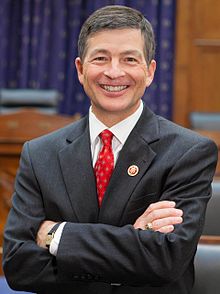By Jim Ellis
Oct. 19, 2018 — The third quarter financial disclosure reports are now public, and more details are readily available. Thus, we are able to learn about various record-setting fundraising efforts.
 In addition to Texas US Senate candidate Beto O’Rourke (D) attracting $38 million in the third quarter, an all-time record for any such campaign, several House candidates also reported financial numbers that have never been seen for district-level politics.
In addition to Texas US Senate candidate Beto O’Rourke (D) attracting $38 million in the third quarter, an all-time record for any such campaign, several House candidates also reported financial numbers that have never been seen for district-level politics.
In the third quarter of 2018, nine House contenders exceeded raising $3 million, eight Democrats and one Republican.
In California’s 22nd District, incumbent Rep. Devin Nunes (R-Tulare), the chairman of the House Intelligence Committee, was the top Republican fundraiser and appears to have accumulated more financial resources for the entire campaign than any other congressional candidate of either party. In the quarter, Rep. Nunes raised $3.14 million. For the campaign, he has exceeded the $10.5 million mark.
But his Democratic opponent, attorney Andrew Janz, brought in over $4 million for the quarter, the only congressional candidate in the US to do so, and an all-time record for a quarter. He still trails Rep. Nunes in overall receipts (Janz posted $7.13 million for the campaign), however. Together, this campaign leads the nation in combined fundraising with over $17 million. For a regular cycle congressional campaign – not including the special elections we saw earlier that became national contests – this, too, is likely an all-time record for a House contest.



